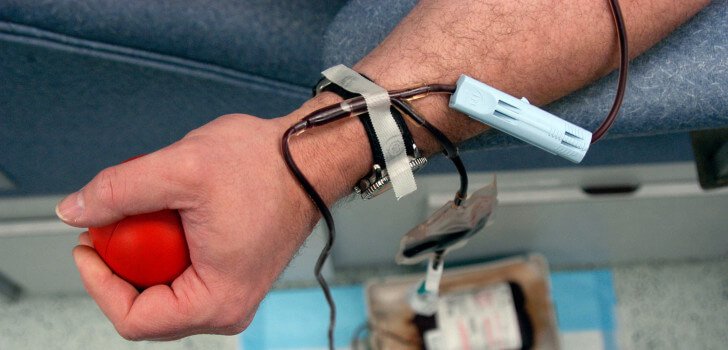The 32 year old ban that forbids gay and bisexual men from donating blood is finally being lifted. However, major restrictions regarding who is allowed to donate blood will still be kept in place, leading many to claim that people in the gay community are still being discriminated against.
Previously, gay and bisexual men were given a lifetime ban on donating blood. Now, the policy will only ban blood donations from any man who has had sexual intercourse with another man within the previous year. This mandate is more in line with the policies of other countries such as Australia, Japan and the United Kingdom.
Gay rights activists have stated that although the new policy change is a step in the right direction, it still falls short.
Representative of the Human Rights Campaign David Stacy said, “It continues to stigmatize gay and bisexual men. It simply cannot be justified in light of current scientific research and updated blood screening technology.”
The policy change, which went into effect on Monday, was first announced in late 2014. It came after years of protests from medical organizations and gay rights groups who argued that the oppressive lifetime ban no longer made sense.
Officials from the FDA said that the change in policy is supported by science, and it still protects the nation’s blood supply.
The lifetime ban was originally put in place during the early years of the AIDS crisis. It was intended to protect the country’s blood supply from a disease that was not properly understood at the time. Many medical groups such as the American Medical Association have said that the policy no longer made sense because of advances in HIV testing.
Today, all blood donations are screened for HIV. But the danger is still present, as there is about a 10 day gap between initial infection and when the virus can be detected in blood tests. According to the American Red Cross, the odds of receiving HIV positive blood in a donation is 1 in 1.5 million.
On the recently-replaced questionnaire for blood donors, men were asked if they have ever had sex with another man since 1977, which was the beginning of the AIDS epidemic in the United States. Those who answered yes were forbidden from donating blood. The new questionnaire asks men if they have engaged in sexual intercourse with another man within the previous 12 months.
While the FDA has good intentions in preventing the spread of a dangerous disease, the association could certainly go about this better than asking an invasive and personal question to blood donors and discriminating against the gay community.
Stay Connected